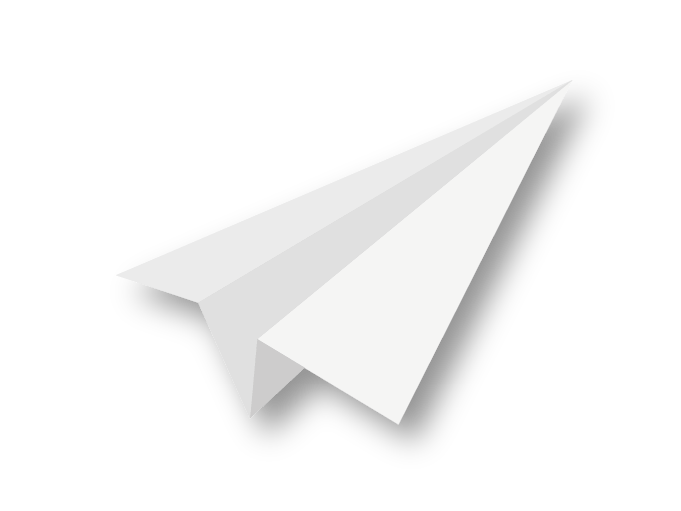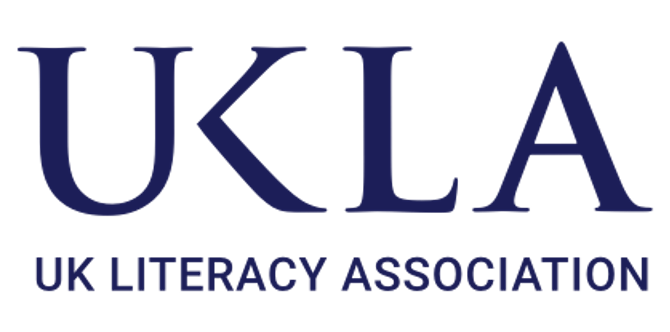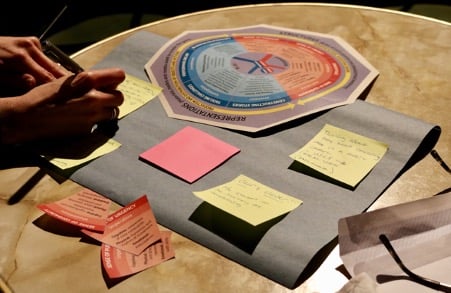
Projects
These projects set out to investigate how the digital world shapes opportunities for playful learning, creative productionas well as how it might be better aligned with children’s rights and needs. I specialise in participatory approaches to research and design,and regularly collaborate with children, artists, educatorsand policy makersto identify and tackle social challenges. Here are some of the questions we’ve been exploring over the years...
Playful by Design
“How can we support innovators to create products for young people which are informed and rooted in the rights of the child?”
This project will create a design tool to support innovators to engage with the recommendations of the Digital Futures Commission, in order to support companies to align their product designs with children’s rights and ethical practices. So far it has involved consultation with industry partners of different sizes including small, medium and large international organisations in order to understand their challenges and needs. We are currently in the process of developing and playtesting a flexible set of cards and resources which set out productively disrupt design pathways, provoke new ways of thinking and provide resources to support new ways of working and extending existing practices.
Warning: Trying to access array offset on value of type bool in /home/cdeacfbc/argle.net/wp-content/plugins/oxygen/component-framework/components/classes/code-block.class.php(115) : eval()'d code on line 44
Immersive Learning Collective
“How are affective and effective ‘playful pedagogies’ shaped through creative partnerships and co-design practices?”
The Immersive Learning Collective is an ambitious three year project exploring the application of Punchdrunk Enrichment practice in school settings. Over three years, teachers and schools will meet regularly, work with Punchdrunk Enrichment practitioners to deliver new projects, learn and apply principles in their school and share knowledge with peers and the wider sector. Teachers and schools will be taken on a journey with the ambition to equip them to become experts in immersive learning techniques and approaches. The project will explore what immersive teaching is, how it can be sustainably embedded in school life and will look further at the impact on teachers’ practice and pupil engagement and achievements. The research will explore the role of the teacher as creative practitioner, building on my research into models of immersive play in Punchdrunk Enrichment’s practice.
Warning: Trying to access array offset on value of type bool in /home/cdeacfbc/argle.net/wp-content/plugins/oxygen/component-framework/components/classes/code-block.class.php(115) : eval()'d code on line 44
Website
The Kaleidoscope of Play in a Digital World
“How does free play manifest in the digital world?”
The Kaleidoscope of Play examines how free play manifests in the digital environment, based on a review of literature across multiple disciplines, ranging from social sciences and humanities to human-computer interaction. The review of literature in this report encompasses theory and evidence concerning the design, development and usage of digital technologies by children and young people from birth to 17 relevant to the UK, and with cross-cultural insights.
The report demonstrates that a holistic approach is vital to understand free play in a digital world. It reveals how playful possibilities are shaped by a range of factors: material-functional (products), social-cultural (people) and contextual-situational (places).
Join the DOTS: Playful Pedagogies
“How does co-design of transmedia games support teachers to develop their understanding of digital literacies (their own and the children in their classes)?”
This 2-year research project, funded by the British Academy, entitled Playful Pedagogies: Developing New Literacies in the Classroom through the Design and Play of Alternate Reality Games set out to investigate how engaging teachers in the co-design of an alternate reality game might develop their understanding of digital literacies (their own and those of the children in their classes). The game, ‘Join the DOTS (Dreams of Time and Space)’, provides a fictional context and pedagogical framework for exploring the potential of ‘transmedia storying’ in schools. The associated planning tool and observation frame support teachers to reflect on the skills, critical questions and cultural connections shaped during play and foreground the value of noticing literacy processes as they emerge ‘in the moment’. These have significant implications educators and policy makers and those developing transmedia narratives with and for young people.
Warning: Trying to access array offset on value of type bool in /home/cdeacfbc/argle.net/wp-content/plugins/oxygen/component-framework/components/classes/code-block.class.php(115) : eval()'d code on line 44
Read book chapter Read article Visit the DOTS website
Digital Literacies in Education: Teaching, Learning and Assessment in 21st Century Classrooms
“What are the principles that underpin the effective teaching and assessment of digital literacy practices? ”
The UKLA Digital Literacies in Education Task Group was funded by the UKLA to develop a resource that will support teachers to plan, teach and assess children’s creative and critical use of digital media. In 2018-2019, a review of existing frameworks relating to digital literacy(ies) in education was conducted by a small team of researchers. Based on this review, a provisional framework for promoting the use of digital literacies in education was compiled and shared at the UKLA International Conference in 2019. Within this framework, 12 principles for the use of Digital Literacies in Education were described. During 2019-20, the team worked with the 12 principles to explore their relevance and potential as tools to support teachers in practice. In this symposium, team members will share their findings and make recommendations for practice.
Warning: Trying to access array offset on value of type bool in /home/cdeacfbc/argle.net/wp-content/plugins/oxygen/component-framework/components/classes/code-block.class.php(115) : eval()'d code on line 44
Book UKLA Paper
The Oracles
“What are the pedagogical principles that underpin immersive play? ”
The Oracles is a multisited immersive gaming experience created by Punchdrunk Enrichment, developed for local primary school children in Haringey, London. Inspired by the myth of the Twelve Labours of Hercules, the project is designed to engage Key Stage 2 pupils with Greek mythology and mathematics, and to improve digital literacies. The research project sought to investigate how gaming pedagogies might be combined with immersive theatre principles to provide a range of learning opportunities for children as they played within and across a range of virtual and physical spaces. Although Punchdrunk Enrichment (PE) has previously integrated gaming principles into their work, The Oracles was the first time that digital gaming, in the form of a ‘virtual world’, had been incorporated into the theatrical experience.
Prospero's Island
“How does an immersive approach to teaching Shakespeare, impact on Key Stage 3 pupils’ writing as well as their attitudes to and engagement in English (and what is the effect of the experience on teachers’ pedagogical practice)? ”
Prospero's Island is an immersive theatre project created by Punchdrunk Enrichment and sponsored by Learning Partner, London Borough of Hackney (Hackney Learning Trust). The project sought to inspire and motivate students’ engagement with the English curriculum, and to develop an immersive approach to teaching literacy that would improve students’ learning. This research investigated the value and impact of the project, focusing on: students’ attitudes to and engagement in English; students’ writing and English teachers’ pedagogical practice. The research focused on the experiences of Year 7 (11-12 year old) students and combined quantitative approaches (measuring changes to students’ writing and their attitudes to and engagement in English) as well as qualitative approaches (looking in greater depth at activities carried out in the installation and in English lessons, and students’ and teachers’ responses to these).
Ludic Authorship: Reframing Literacies through Peer-to-Peer Alternate Reality Game Design in the Primary Classroom
“How do children demonstrate and draw on the operational, cultural and critical dimensions of their literacies when engaging in Alternate Reality Game authorship with and for their peers?”
Investigations into the digital literacy practices supported by new forms of play can pose significant challenges insofar as researchers and educators lack theoretical frameworks nuanced or flexible enough to map the terrain being explored. This award winning research presents a new hybrid model of ludic authorship which reconceptualises the relationship between digital play and literacies and uniquely serves both pedagogical and theoretical purposes; it provides a tool through which educators and policy makers may begin to articulate the value of digital literacies involved in digital play, whilst also allowing them to plan and evaluate such learning opportunities in educational settings. This model emerged from an innovative empirical study into Alternate Reality Game (ARG) design in a primary school classroom which demonstrated that digital play is a literacy practice requiring three dimensions of literacy: operational; critical; and cultural.
Warning: Trying to access array offset on value of type bool in /home/cdeacfbc/argle.net/wp-content/plugins/oxygen/component-framework/components/classes/code-block.class.php(115) : eval()'d code on line 44
PhD Thesis Article
LET’S INVESTIGATE!
UNDERTAKING RESEARCH AND EVALUATION
I have more than 25 years of experience as an educator. Before becoming an academic, I worked in schools as a class-teacher and senior leader and before that undertook community arts work in youth centres, adventure playgrounds, museums, libraries and community centres. Many of the resources I have developed and shared on this site have won multiple awards, been quality assured by the UK Government and have been recognized by the European Policy Network as good practice. Please do get in touch if you would like me to help you develop your curriculum or co-design a new resource or educational product with you.




